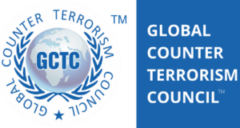Author: Riya Raj Research Coordinator, GCTC
Areas of interest: Security studies, Human security, Human rights, International relations, 21st-century challenges(poverty, hunger, development, environmental issues), Public policy.
Security has different meanings for different people all around the world. Most scholars in International Relations agree to define it as the alleviation of threats to cherished values vital for survival of the referent object. Some of the major security problems in contemporary times are Terrorism, civil war, humanitarian crisis, environmental/climate change problems, cyber-crimes, international trade war, domestic extremism (Maoist, Naxals), poverty and development, weapons of mass destruction, transnational criminal activities, energy security, global health security, etc. War and threat of violence are only a part of security studies known as strategic studies.
COVID-19 pandemic, HIV/AIDS, Influenza H1N1 and SARS are a few examples of diseases, global health security issue that have the potential to threaten the physical integrity and national security of a state. Stephen Walt’s “The Realist’s Guide to the Coronavirus Outbreak,” is a compelling example to prove the relevance of realist approach in the international relations of contemporary times. Responses by nations have demonstrated the primacy of sovereign states, rationale for great-power competition and obstacles to international cooperation, ineffectiveness of international organizations—all key features of the realist school of thought.
COVID-19: WHY IT IS A MAJOR GLOBAL SECURTIY ISSUE.
Some of the major ways in which COVID-19 has threatened the national security of states are:
- It has caused 43,17,445 deaths all over the world till now. Strained global public health, nations’ workforce, political instability, economic recession, class strife. Education is a major component of human security and the shutting down of education sector due to COVID-19 has adversely affected learning and human interaction which are essential for social and behavioral growth. It has led to increase in child labor, child marriage, domestic violence, depression, poverty, unemployment, under-nutrition, lack in food security.
- Conspiracy theories. Assumed to be a biological warfare/ bio-terrorism- dangerous consequences.
- Covid-19 has proved to be devastating for migrants and vulnerable refugee from countries struggling with conflicts.
- Violent extremists leave no opportunity to exploit public fears. False information related to the spread of Covid-19 is being intensely circulated to incite violence, frighten targets, and promote selfish ideologies. Challenges faced by Left-Wing or Right-Wing infested nations are increasing. Example- India struggles with Maoist attacks.
- Cyber terrorism- a major security threat in contemporary times. Online activities were an opportunity to damage states and people. They attempt to steal money, rob sensitive private information of patients from hospitals, attack research centers for information relating to the vaccine for COVID-19, encrypt sensitive data which they could sell in black market demanding huge ransoms, or even simply to put others at a disadvantage.
REALIST APPROACH
Realist approach explains the events during Covid-19 most appropriately. Most nations have turned inward, enforced travel and entry bans, export controls, hoarding or obscuring information, border closures and quarantines to control and limit Covid-19. During this constricted international order nations are doing their best to find the cure or vaccine with a unilateral approach. Kenneth Waltz wrote in his ‘Theory of International Politics’, the domestic imperative is ‘specialize’ and the international imperative is ‘take care of yourself’.
PRIMACY OF SOVEREIGN STATES
I strongly believe that in the self-help anarchy, the dominant response to Covid-19 is self-preservation. Those countries that are powerful enough or lucky enough to produce COVID-19 vaccines and antivirals will probably help themselves first, even if the need elsewhere is greater. Role of leaders, rational domestic policies, updated health facilities, proper measures, decision making are some of the factors which will help a nation contain the virus. This explains why some countries like New Zealand, Iceland, Tanzania, Fiji, Montenegro, Vatican City, Seychelles, Mauritius, and Papua New Guinea have controlled COVID-19 more appropriately than others. Global efforts do play a role, but Sovereign states remain the central political actors in the contemporary world. Neo-classical realism states that the states response to pressures at international level is influenced highly by their domestic conditions. The responses to COVID-19 are exposing the strengths and weakness of different types of regimes (authoritarian v/s democratic).
Self-preservation rather than co-operation. For example- Italy was struggling to fight against the virus, its request for support was highly ignored and unattended by the European leaders. Ashley J. Tellis, in an essay to The National Bureau of Asian Research, elaborates how President Trump compelled India to export hydroxychloroquine to the United States under pressure, despite the drug being of dubious effectiveness against the Coronavirus.
RATIONALE FOR GREAT POWER COMPETITION
Structural Realism argues that due to globalization, there is increase in interdependence among nations- results in increase in probability of peaceful co-operation as well as of violent conflicts. States are rational actors who know when to co-operate and when to compete. Sovereign states are ready to co-operate to tackle issues like terrorism and environmental problems.
But Covid-19 is giving rise to xenophobia. Even during a pandemic, great powers decide to compete rather than co-operate. Therefore, conspiracy theories against each other are spread. The most dominant conspiracy theory is by U.S AND CHINA against each other. The balance of power theory of Realism explains these relations where China wants to get upgraded as a great power and America wants to preserve its tag of global hegemony. They both are trying their best to attract allies and maximize their power. The deadly virus may prove to be a reason why state borders will become higher than before because rather than co-operating to find a vaccine, the nations are competing for relative gains. This relationship between U.S and China during the pandemic is best explained by Great Power Populism- how trusting in a vague international community to guarantee national security and prosperity is a risky option. GPP is driven by revisiting, revising, reforming or revolutionizing the international system with the emphasis on zero-sum “grabbing your fair share,” and not really trying to cooperate on any issues, but trying to maximize benefits for yourself, your regime, your country, your system or your government. Countries tend to believe that they will absorb the damage of the pandemic and recover faster and quicker than others, that the pandemic will weaken their rivals and may even bring them down, that they can take advantage of the chaos and confusion to change the proverbial facts on the ground and improve their geopolitical and geo-economic positioning.
Another major conspiracy theory involves U.S and Iran blaming each other for the virus. And U.S denys to providing any relief over its sanctions or any other aid.
FUNDAMENTALLY INACTIVE INTERNATIONAL INSTITUTIONS
Realism doubts their role in dealings with global security problems and has long-before predicted the false premises of international institutions (John Mearsheimer in 1994). They are believed to be dominated by the strong powers for selfish national interests. WHO is too weak to do anything other than that what is dictated to it by the powerful nations. Gian Luca Burci said- the COVID-19 pandemic has once again shown that international organizations are ideal scapegoats. Nations have marginalized and criticized international organizations because- WHO’s delay in recognizing the deadly covid-19 and alerting the nations, inaction by Security Council, lack of solidarity by the European Union. WHO received backlash from U.S for failing in its ‘basic duty’, which also led to the cutting of funds it received from U.S. WHO lacks the material power required to have much independent, effective response to COVID-19 or any other health emergency. But U.S. fails to identify relevant primary obligations that would have been violated by the organization because of the lack of legal obligation on international institutions, which accounts for their ineffectiveness. The G-20, and the United Nations can hardly organize a unified response.
SOLUTION TO RESOLVE COVID-19:
- Realism explains that achieving effective international cooperation to fight COVID-19 is not an easy task. But states should together rise above the idea of relative gains and should co-operate with each other to find the vaccine to such a deadly virus which is a major threat to the entire human race.
- Countries should take it as a threshold where they need to focus on mutual benefits by combining their intelligence and resources, work as a team, united approach to research for a vaccine and eradicating the virus because closing borders will be mutually disadvantageous to all in the long run.
- Realism also suggests that in this competitive self -help world, states cast a wary eye on what others are doing and have a big incentive to imitate success, they will try to do their best to contain the virus. One effective response will be followed by many other nations, and they will be able to finally find the best solution globally.
- States should strengthen their health facilities and use strategies to receive help from neighbors, share science and technology developments to mutually benefit each other.
- This is a major global health security issue which if not approached from a communitarian realist view will lead to unreversible damages.
CONCLUSION
Realism has questioned the relevance of power notions of global politics like super-power and globalization. Failure to manage and mitigate at this stage will have a long-term impact on international peace, stability, and security. Inability to contain the deadly virus may force Nations to withdraw themselves from the international community and formulate isolationist policies. As the Coronavirus pandemic escalates, the task of rethinking the political, economic, diplomatic, and strategic fundamentals of a more coherent approach to the national security becomes more urgent than ever. Idea of absolute gains should be preferred over relative gains. The entire world needs to work as a team with a united approach and from a communitarian realist view. Coronavirus is a threat to human race but also offers an opportunity for cease-fires between combatants, for peace between enemies, for cooperation across and within borders, and for building trust where there may be none. Domestic security, international politics, and economic preferences need to adapt holistically to the emerging landscape of complex security threats.




